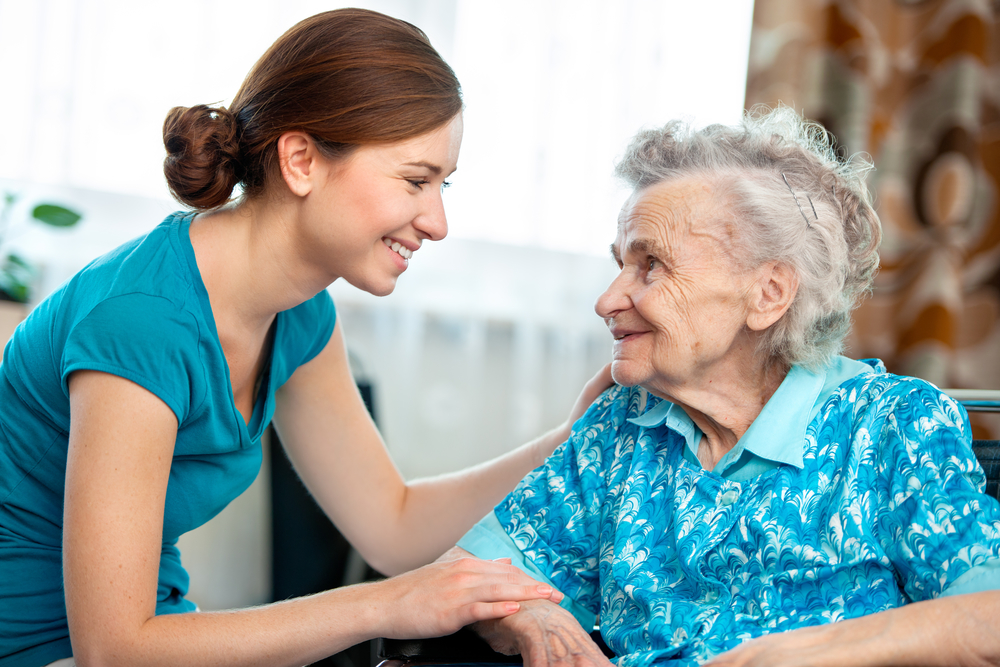
Alzheimer’s and Dementia: How You Can Help
Rosh Hashanah and Yom Kippur are right around the corner, and these fall holidays are an important time for families to come together. But when you visit an elderly relative, pay close attention – you may notice some changes in their behavior.
As parents and grandparents increase in age, their risk of developing Alzheimer’s disease increases as well. This number includes an estimated 5.5 million people over the age of 65 and approximately 200,000 individuals under 65. 1 in 10 people 65 and older have Alzheimer’s. Almost 2/3 of Americans with Alzheimer’s are women. Here’s what you need to know, what you can look for, and steps you can take to care for your loved one who may be living with Alzheimer’s:
Alzheimer’s & Dementia
Alzheimer’s disease is not a separate condition from dementia. In fact, Alzheimer’s is a type of dementia, and they share a causal relationship with one another. See these quick facts below:
- Dementia refers to a group of symptoms associated with severe mental decline, such as memory loss, impaired judgment and impacted communication skills.
- Alzheimer’s disease is the most common cause of dementia in geriatric patients, accounting for between 60 and 80 percent of all reported cases.
- Alzheimer’s (or any form of dementia) is not a natural part of aging – age is simply a risk factor for a condition that should be addressed and treated, not ignored or allowed to progress without care.
Warning Signs
Alzheimer’s is a progressive disease that occurs in stages, but according to the Alzheimer’s Association, “An early diagnosis can allow a person the opportunity to live well with the disease for as long as possible and plan for the future.” In order to diagnose your loved one at the earliest stage, it’s important to look out for symptoms such as:
- Frequently misplacing objects of value
- Falls
- Difficulty focusing, organizing and finishing tasks
- Increased forgetfulness of names and information
- Changes in sleep pattern or general restlessness
- Noticeable changes in mood or behavior
Every person is different, and you know your family best – use your judgment as you consult a health care professional to determine whether any behaviors are out of the ordinary.
What Can You Do?
Because Alzheimer’s affects the memory and ability to function, it’s extremely beneficial to have a professional caregiver in the home with the patient. There are two distinct types of home care – Home Health Care and In-Home Care – that are best described below:
- Home Health Care is best for those who have recently been hospitalized, who are undergoing rehabilitation, or who have a change in condition. Home Health Care is a specifically medical service that focuses on therapies and nursing.
- In-Home Care is an excellent option for those living with Alzheimer’s and dementia. In-Home Care professionals are equipped to provide support with all aspects of daily living: bathing, dressing, toileting, cooking, medication reminders, in addition to errands, laundry and cleaning.
The In-Home Care professionals referred by La Nurse Home Care Registry can help seniors with Alzheimer’s maintain a sense of normalcy, leading their lives in their home rather than moving into an assisted living facility or a nursing home. Clients will receive one-on-one attention and assistance from their caregiver while remaining in their familiar surroundings and continuing to do the activities they love.
The holidays are an excellent opportunity to have an honest conversation with a loved one in your life, and In-Home Care from La Nurse Home Care Registry is an option that maintains their independence while securing your peace of mind.
For more information on how we can help those living with Alzheimer’s and dementia, please call 561-279-9885 or visit us online.
